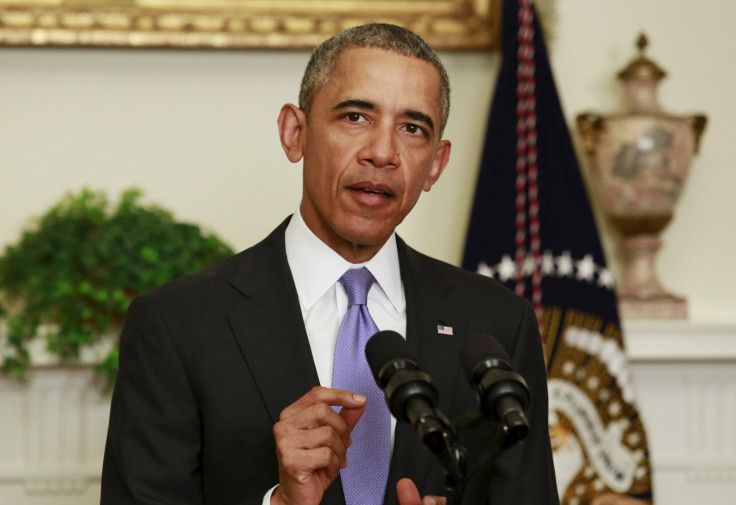Iran Nuclear Deal News: Obama Protests Sanctions Extension Act, Will Not Sign

The White House announced Thursday that President Barack Obama would not sign a bill passed last month that extended U.S. sanctions on Iran for a decade but acknowledged the law would go through anyway.
White House spokesman Eric Schultz had previously indicated that Obama would likely sign the bill, which would not affect the multilateral treaty signed last year by the U.S., Iran and five other nations through which Tehran agreed to limit its nuclear program in exchange for the lifting of years of economic restrictions.
The White House announced the administration's apparent change of heart in a news release.
"This Administration has made clear that an extension of the Iran Sanctions Act, while unnecessary, is entirely consistent with our commitments in the Joint Comprehensive Plan of Action (JCPOA). Consistent with this longstanding position, the extension of the Iran Sanctions Act is becoming law without the President's signature," the statement read.
Last month's bill, which passed 99-0 in the Senate, predates the current nuclear debate with Iran. The law was originally passed under President Bill Clinton in 1996 as the Iran And Libya Sanctions Act and sought to penalize U.S. and international firms doing business with both Iran and Libya, then led by Moammar Gadhafi, punishing what lawmakers felt was support for terrorist activity worldwide. The bill was later reworked to only target Iran, specifically its lucrative petroleum sector.
While the White House reiterated its support for the nuclear treaty in the wake of the Iran Sanctions Act's passing, Russia stated its disappointment in Congress' decision. Iran too expressed its opposition to the extension of non-nuclear sanctions, with Iranian President Hassan Rouhani condemning the bill.
“If this law is implemented it will be a blatant violation of the Iran deal and it will lead to our resolute answer,” Rouhani told parliament on Dec. 4.
Once a bill is passed, the president has 10 days to sign, veto or abstain. If the president does nothing and Congress is still in session, the bill becomes law without any presidential action.
© Copyright IBTimes 2025. All rights reserved.






















